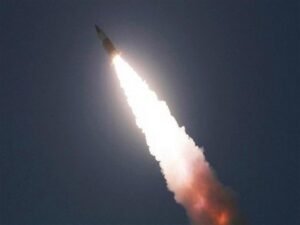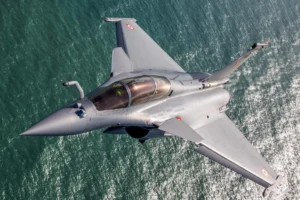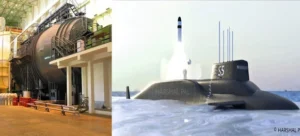Source : Financial Express
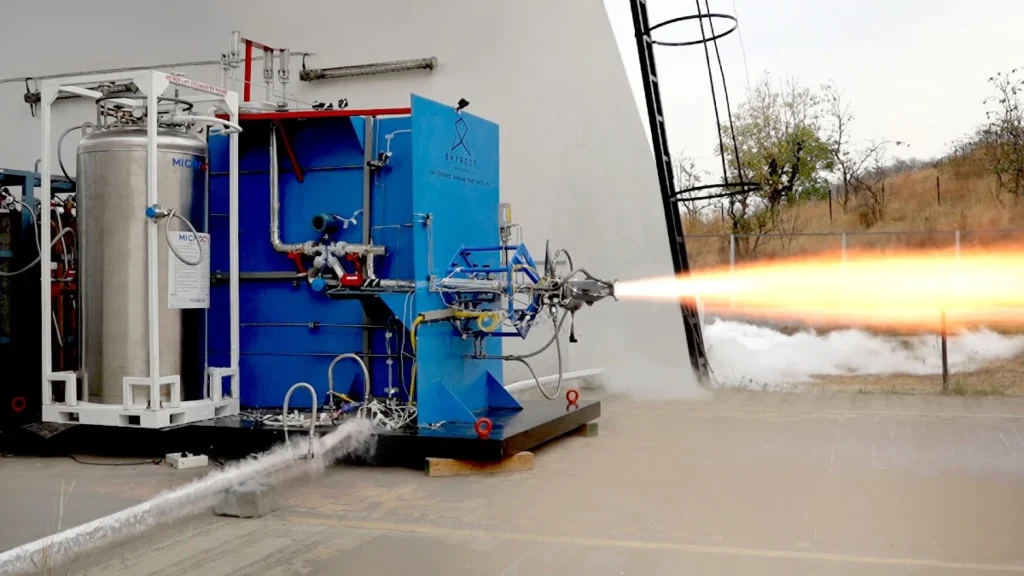
HISTORIC : In another first, India’s Skyroot Aerospace successfully tests 3D printed cryogenic engine
Skyroot Aerospace, country’s first private rocket builder, has achieved a major milestone when it successfully test fired an advanced fully 3D-printed cryogenic engine `Dhawan-II’. The endurance test of ‘Dhawan-II’ was carried out using Skyroot’s indigenously developed mobile cryogenic engine test pad at Solar Industries propulsion test facility in Nagpur, Maharashtra. And it lasted for a long duration of almost 200 seconds, which is a record.
This achievement follows the launch of Vikram-S in November 2022, which had made Skyroot the first private sector company to send rockets into space and had also showcased the disruptive potential of India’s emerging private space industry.
It is built upon the foundation which was laid by Skyroot’s first fully-cryogenic rocket engine, the 1.0kNthrust Dhawan – I. And in November 2021, this was successfully test fired. As reported earlier the company has named the cryogenic engine series in honour of Dr Satish Dhawan, who has played a very important role in the development of the Indian Space Programme.
According to the company statement issued on Tuesday (April 4, 2023) the cryogenic engines use two high-performance rocket propellants. These include Liquid Natural Gas (LNG) and Liquid Oxygen (LoX). And for storage and operation these require the cryogenic temperatures to be below -150° Celsius.
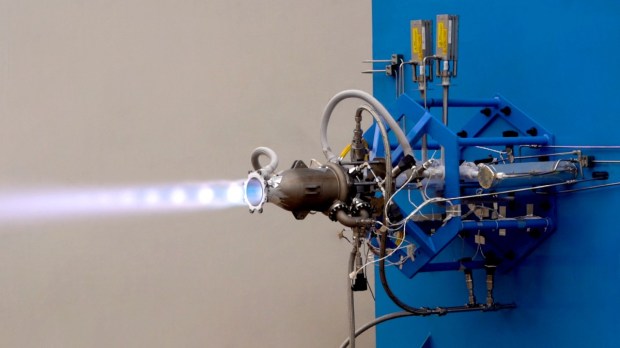
Due to their higher specific impulse which helps to enhance payload-carrying capabilities these fully cryogenic engines are perfect for the upper stages of a rocket.
Only a handful of countries globally have mastered this advanced technology.
An important aspect is that both LNG, which is more than 90 percent Methane, and LoX, are environment friendly as they are green burning propellants as compared to hypergolic, solid and semi- solid, semi-cryogenic propellants which are used in the rocket industry.
The company statement adds that its aim is to make spaceflights reliable, regular and affordable and has several launch missions which are progressing towards launch and this includes the upcoming Vikram-I which is expected to be launched by end of 2023. This will be the first orbital private rocket launch in South Asia and will be another milestone for the Indian Space industry.
Today’s successful test takes the company a step closer to work on Vikram-II which is an upgraded version of Vikram-I which uses a cryogenic upper-stage, ready to launch by next year.
The engine development was partly supported by NITI Ayog’s ANIC-ARISE programme. This programme, according to the company, helps to promote technologies including the use of green rocket propellants.
Comments
On the successful test of Dhawan-II, Pawan Kumar Chandana, Co-founder and CEO of Skyroot Aerospace, has termed it as a landmark achievement not only for Skyroot but also the private space sector.
The company according to him is at the forefront of developing cutting edge cryogenic technologies in the private sector and has also pushed the limit with advanced technologies like 3D We are proud to be at the forefront in developing cutting-edge cryogenic technologies in the private space sector of India, and pushing the limit with advanced technologies like green propellants and 3D printing.
According to Naga Bharath Daka, Co-founder and COO of Skyroot Aerospace, this test will enhance the payload capacity of Vikram series of space launch vehicles. And to meet wider customer requirements will make them modular.
Veteran rocket scientist V Gnanagandhi, Padma Shri awardee who leads liquid and cryogenic propulsion at Skyroot has said “It is highly encouraging that we have achieved continuous firing of 200seconds with stable combustion. Our3D printed Dhawan – II engine also uses a 3D printed torch igniter and a bellow-actuated cryo-injection valve with quick response time. It is a remarkable achievement by our team and we could get valuable data for next generation cryogenic engine technology with LNG as fuel.”


